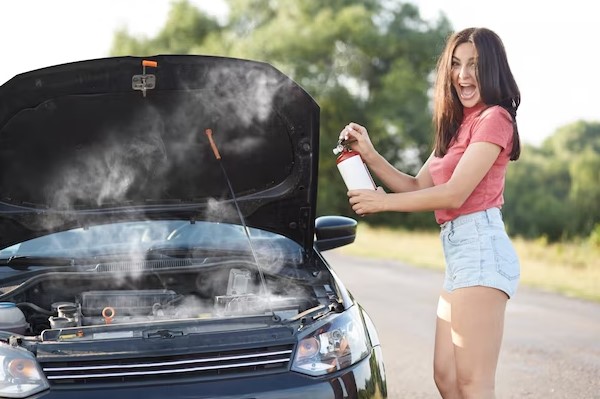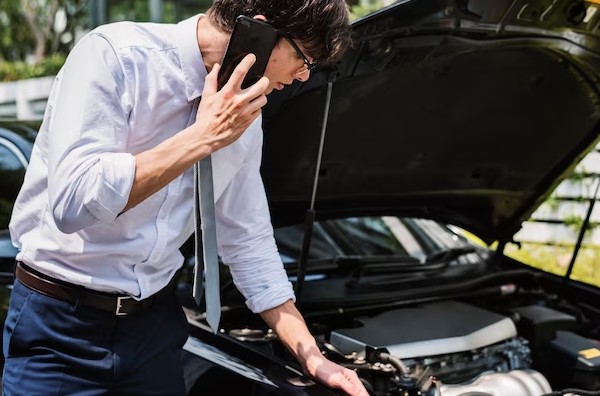If your vehicle’s engine has been replaced, it’s possible for new issues to arise. These issues may be due to a defective product or poor installation by the mechanic. Is your car showing signs of engine problems or faults after installing a new one?
There are several common problems after engine replacement. It can be frustrating that you just replaced the engine in your vehicle, and now it’s acting up again. Most of these engine faults can be avoided if caught early. It’s important to understand these potential issues, so you can minimize their impact on your vehicle.
Our article offers easy-to-understand advice and helpful tips to minimize any problems with your car after a new engine installation. We’ll look at what could be causing the issue as well as how to prevent it from happening.
There are several common problems after engine repairs. Read on to discover what vehicle maintenance you should be doing and how to minimize the impact of these issues.
Common Problems After Engine Replacement
Here are the most common problems that your vehicle might have after an engine replacement. We’ve also included tips on what you can do to minimize the issue.
Leaks
One of the most common problems after engine replacement is leaks. This can be caused by loose hoses, gaskets, or clamps not being properly tightened during installation. It’s important to inspect your vehicle for any signs of leaking fluids after a new engine is installed.
If any of these components are not securely fastened, it can cause leaks to occur. To minimize the chance of leaks after an engine replacement, always check for signs of loose connections and make sure all components are tightened.
Overheating
Another issue that can occur after an engine installation is overheating. This is usually caused by a lack of coolant or oil, or not enough air getting to the engine. If these problems are not addressed, they can lead to major damage and costly repairs.
It’s important to always check your vehicle’s coolant and oil levels after an engine replacement. Make sure that the cooling system is properly flushed and filled with fresh coolant, as well as ensure that all air filters are clean. If warning lights for oil levels are showing, this can be a serious problem.
Incorrect Air-Fuel Mixture
The incorrect air-fuel mixture can cause your engine to run inefficiently or even fail. This can be caused by a vacuum leak or incorrect fuel pressure, both of which can be easily diagnosed.
To ensure that your air-fuel mixture is correct after an engine replacement, check for any vacuum leaks and make sure the fuel pressure is set correctly. If any issues are found, they should be addressed immediately to prevent further damage to the vehicle.
Poor Performance
Poor performance is another issue that can occur after an engine installation. This is usually caused by incorrect timing, faulty sensors, or a lack of power from the fuel system.
These issues should be diagnostically checked and repaired as soon as possible to ensure that your vehicle runs smoothly.
Engine Vibrations
If you experience engine vibrations after replacing your engine, it could signal a problem with the drivetrain. This can be caused by an improperly balanced flywheel or incorrect alignment of the motor mounts.
To minimize this issue, make sure your mechanic takes extra time to ensure everything is properly aligned and balanced.

Poor Fuel Economy
If you notice a decrease in your vehicle’s fuel efficiency after engine replacement, it could be an indication of a larger problem. This can be caused by a faulty fuel injector or vacuum leak, both of which need to be addressed as soon as possible.
To prevent poor fuel economy after engine installation, it is important to check for any vacuum leaks and ensure that the fuel injectors are in good working condition. Additionally, it is beneficial to inspect all air filters to make sure they are clean and not clogged with dirt or debris. Properly tuned engines also have a major impact on fuel economy.
Poor Acceleration
If you notice that your vehicle is having difficulty accelerating after installation, it may indicate a problem with the spark plugs or ignition system. Make sure you have these parts inspected and replaced if necessary to ensure optimal engine performance.
To prevent poor acceleration after engine replacement, it is important to inspect and replace any faulty spark plugs or ignition components as soon as possible. Additionally, it is beneficial to check that the fuel injectors are in good working condition and that all air filters are clean and not clogged with dirt or debris. Properly tuning the engine can also help to ensure optimal acceleration.
Weird Noises
If you notice any strange noises coming from your engine after installation, it could indicate a problem. This can be caused by a leak or improper alignment of the motor mounts.
To quiet any weird noises after installation, make sure to check all belts and hoses for signs of wear and tear. Additionally, it is important to inspect all air filters and fuel injectors to make sure they are in good working condition. It’s also worth checking the motor mounts for any signs of misalignment or weak points that may need to be addressed.
Unusual Smoke or Odors
If you notice an unusual smoke or odor coming from your engine after installation, it could be a sign of an issue with the fuel system. Make sure to inspect the fuel injectors and check for any signs of clogging or blockage. Additionally, make sure that all air filters are clean and not clogged with dirt or debris.
Have a professional mechanic inspect the engine and fuel system for any other signs of problems. Doing this can help to ensure that your engine performs optimally after installation.
Looking For More Useful Advice on Car Maintenance?
When it comes to common problems after engine replacement, there are several things to watch out for. From checking spark plugs and mounts to investigating noises or smells, there are plenty of things that can indicate a problem with your engine.
If you’re looking for more useful advice on car maintenance, be sure to check out our website where we provide helpful tips and tricks!




